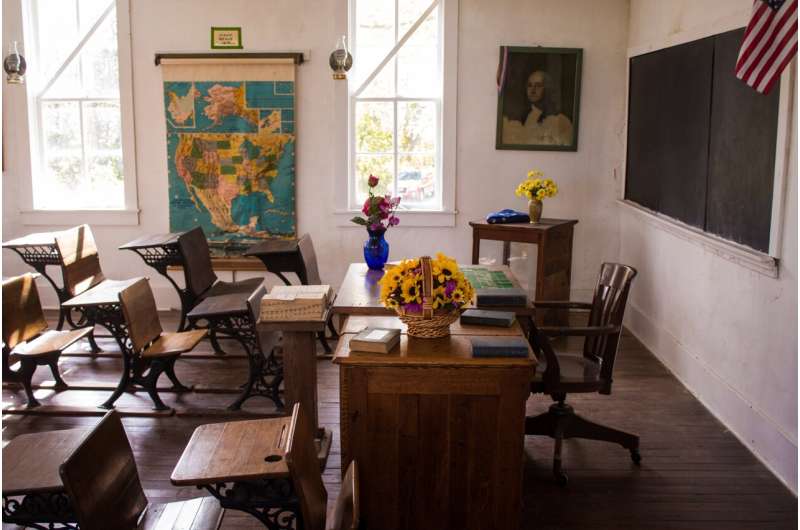This article has been reviewed according to Science X's editorial process and policies. Editors have highlighted the following attributes while ensuring the content's credibility:
fact-checked
proofread
Study: Teacher perceptions of chronically absent young students may add to the challenges of missing school

A new study finds that early elementary school teachers report feeling less close to chronically absent students and view them less positively, even when those students do not cause trouble in the classroom. This "cooling down" in the relationship between teachers and their chronically absent students may exacerbate the academic challenges these children face.
The study, by Michael A. Gottfried and Phil H. Kim at the University of Pennsylvania, and Tina Fletcher at the Walton Family Foundation, is published in AERA Open, a journal of the American Educational Research Association.
Chronic absenteeism has skyrocketed since the pandemic, with 30% of U.S. students chronically absent in the 2021–22 school year, nearly double the rate in 2018–19, according to the Annie E. Casey Foundation.
In addition to feeling less close to chronically absent students, teachers in kindergarten, first grade, and second grade reported viewing them as more withdrawn and as having worse interpersonal skills. When it came to academics, teachers perceived chronically absent students as having fewer positive learning behaviors as well as being worse at literacy and math, even if this was not true.
The study found that while teachers reported feeling less close to these students, they did not feel as if they had more conflict with these students. Rather, teachers viewed chronically absent students as displaying more internalizing behaviors, such as being withdrawn, but not externalizing behaviors, such as acting out.
"One stereotype about absent students is that they are 'troublemakers' when they are back in the classroom, but we don't find that to be the case at all," said Gottfried, a professor at the University of Pennsylvania Graduate School of Education.
Prior research has shown that negative teacher perceptions of students can harm children's growth and development in school.
"Our findings suggest that absenteeism puts students at a double disadvantage," Gottfried said. "First, they miss out on essential learning opportunities by not being in school. And then it erodes their teachers' relationships with them, which can further harm their academic growth."
Gottfried noted that schools can help by providing teachers with professional development to mitigate potential bias against students who miss a lot of school. This is especially important given that there are demographic disparities in who is absent, such as by race and ethnicity. Teachers might be adjusting perceptions in a systematic way by race and ethnicity as it is tied in with absenteeism.
While previous studies have examined the impact of student absenteeism, this is one of the only studies to consider how student absenteeism might influence teachers. The study used nationally representative data from the National Center for Education Statistics on 14,370 students in kindergarten, first grade, and second grade. The data were drawn from direct assessments of children, parent interviews, and education and administrator questionnaires. Chronically absent students were defined as missing at least 11 days of school during the academic year.
Gottfried stressed that this study highlights that absenteeism is both an individual and classroom issue.
"We need to pay attention to both if we are aiming to solve the absenteeism crisis," Gottfried said.
More information: Do Teachers Perceive Absent Students Differently?, AERA Open (2024). www.aera.net/Newsroom/Do-Teach … Students-Differently
Provided by American Educational Research Association





















